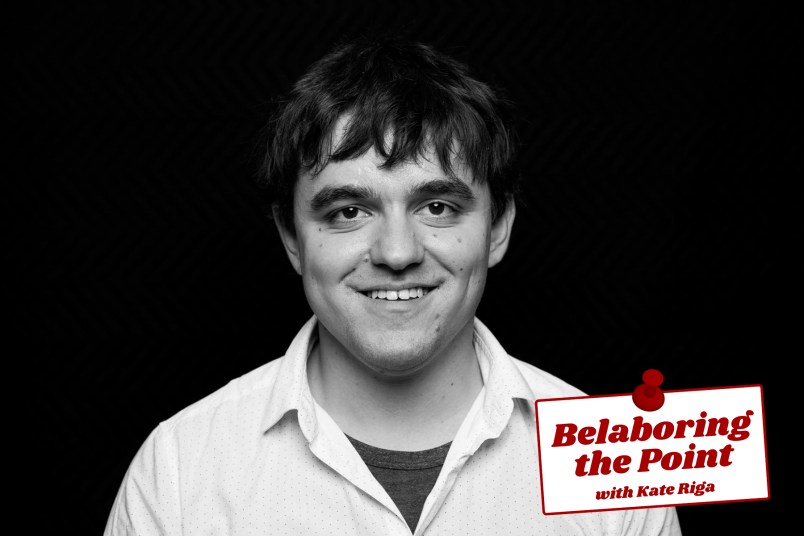Back in March I did a few posts trying to get some answer or even an argument to back up Joe Klein’s claim that Social Security was a program suited to the industrial age but not to the information age.
At the time on Meet the Press he had told Paul Krugman that “I think private accounts a terrific policy and that in the information age, you’re going to need different kinds of structures in the entitlement area than you had in the industrial age.”
This argument was beyond my powers of reasoning. And if there’s no good argument behind it such talk is pernicious since finding new policy solutions to meet the challenges of the global economy is only impeded by an addiction to buzzwords and sloppy thinking.
I never got a good explanation of what the argument was. So I was surprised and disappointed to see this passage in an article by Matt Bai in today’s Times magazine …
Just as G.M. has protected its outdated products at the expense of its larger mission, so, too, have Democrats become more attached to their programs than to the principles that made them vibrant in the first place. So what if Social Security and Medicaid functioned best in a world where most workers had company pensions and health insurance and spent their entire careers with one employer? The mere suggestion that these programs might be updated for a new, more consumer-driven economy sends Democratic leaders into fits of apoplexy.
Given what he says here, Bai must be talking, as Klein was, about privatization and private accounts when he talks about Social Security.
Please bring me more policy wonks who can think in new ways as befits new times because we are surely in new times. But let’s not spin our wheels with the siren song of cool-sounding phrases and poorly thought out arguments.
Bai apparently agrees with Klein that Social Security made for good policy “in a world where most workers had company pensions and health insurance and spent their entire careers with one employer” but not in a world with heavier job turnover and fewer employer-based supports like pensions and health care.
Maybe Bai has a theory to back this up. But it really seems to make no sense to me.
Let’s discuss specifics.
As Bai suggests, one of the key challenges we face today is much more rapid job turnover and the decline of employer-based pensions and healthcare. The changes are, of course, tied together and each comes in response to the same economic pressures. If you’re going to have four or five jobs over the course of your working life then the traditional employer pension you get after putting into twenty or twenty-five years at a company just isn’t going to work — at least not without some policy tinkering that makes the old system more portable between jobs.
How this makes Social Security less workable or efficient is difficult for me to understand since Social Security is the ultimate in portability. You can change jobs every six months for life and it doesn’t matter. And your pension isn’t reliant on every company you ever worked for still being solvent when you retire.
Truly, you really don’t have to reason through this one very far or very hard to see that if anything has changed over the last few decades it is that Social Security has become more important and more suited to the circumstances of the time rather than less.
There are ideological reasons for changing Social Security or phasing it out. But Bai is saying the structure of our economy today makes it less workable, less efficient. I don’t see where that stands up to simple argument. If someone can explain how it does, send me a brief argument to that effect and I’ll print it.






